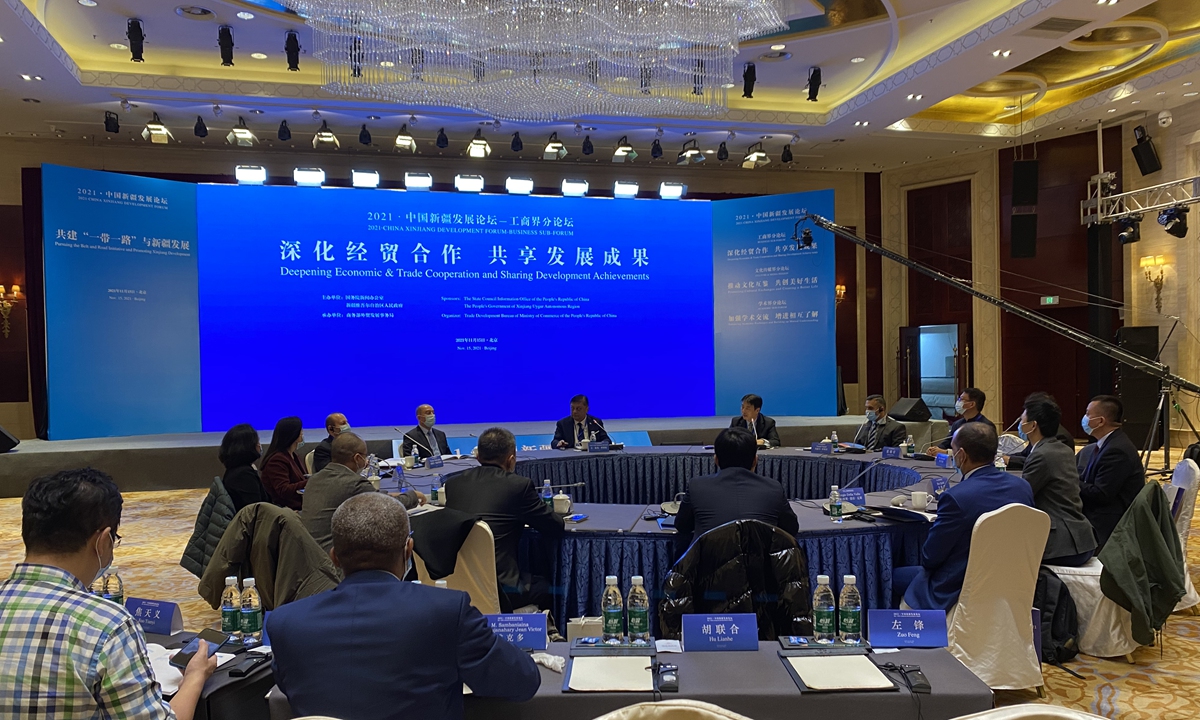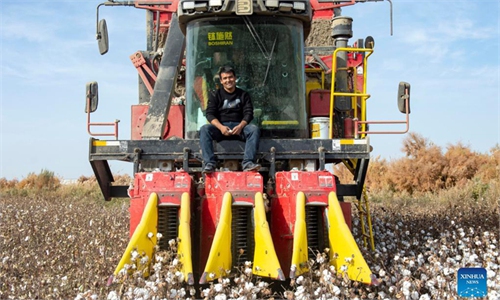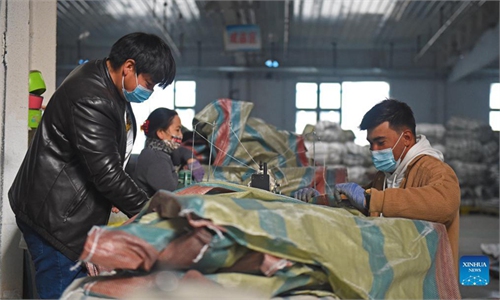
2021 China Xinjiang Development Forum is held in Beijing on November 15. Photo: Zhang Dan/GT
Being in the crosshairs of Western anti-China forces, Northwest China's Xinjiang Uygur Autonomous Region held a development forum on Monday, with government officials, business leaders and academic researchers coming together, discussing the region's development and its active participation in the Belt and Road Initiative (BRI).
Government officials at the 2021 China Xinjiang Development Forum, held in Beijing, refuted insidious accusations from anti-China forces in the West, and called for better integration with the BRI, winning greater recognition and support from foreign diplomats and experts who are standing up for justice.
Some anti-China forces have talked down the BRI, and Xinjiang is a key link in the initiative, said David Ferguson, honorable British expert of the Foreign Languages Press at the forum on Monday.
"Xinjiang represents a new double opportunity for the anti-China forces in the world. It can be exploited as a point of attack to undermine the Belt and Road Initiative, and also as a point of attack to undermine the 2022 Beijing Olympics," he said.
According to the British expert, China has done extensive and patient work in refuting Western accusations on Xinjiang.
For example, from 2014 to 2019, the per capita disposable income of urban residents in Xinjiang grew from 23,200 yuan ($3,635) to 34,700 yuan, registering an average annual growth of 8.6 percent, data showed. Rural residents increased their disposable incomes from 8,724 yuan to 13,100 yuan, registering an average annual growth rate of 8.9 percent.
"If the West doesn't like China fighting back, there's a simple solution. Stop your wonton accusations," Ferguson said.
Zhu Yong, a senior commerce official in Xinjiang, told the Global Times in a recent interview that the region attached great importance to cooperation with BRI markets.
The region made intended purchase agreements for $22 million worth of goods and services with suppliers from nine countries at the recently concluded 4th China International Import Expo in Shanghai.
These purchases include countries along the BRI, as well as the US, Sweden and Japan. The deals cover medical equipment and healthcare, and many consumer goods.
The region hopes the introduction of advanced foreign technology, equipment and services will help spur innovation in Xinjiang's agricultural and processing industries, such as naan and wine.
Commenting on Western media accusations of human rights abuses and forced labor in Xinjiang, Gustavo Sabino Vaca Narvaja, Ambassador of Argentina to China, told the Global Times at the forum that many of the media outlets produced their reports under the influence of some countries.
"I have been to Xinjiang. What I saw there is prosperous development and different ethnic minority groups living in harmony. Seeing is believing," he said.
China has put technology development at its core and the benefits of its people as the priority, that has also empowered Xinjiang's rapid growth, the ambassador said.
China has set world records in aerospace and deep-water exploration, and it now leads in 5G technology, big data centers and cloud computing, he added.
Expanding ties with Xinjiang remains a focus of the embassy's work, he noted, not only because Xinjiang accounts for 17 percent of China's national territorial area, but also due to its strategic location that goes through three economic corridors under the BRI - the Mongolian, Eurasian and Pakistan economic corridors - and the region connects with China's three economic clusters - the Bohai Bay, the Yangtze River Delta and Pearl River Delta.
On Friday, the 5,000th China-Europe freight train in 2021 set out from Alashankou port in Xinjiang, 50 days earlier than last year. In total, 21,600 China-Europe freight trains have been through the port, playing a significant role in trade between China and countries and regions along the BRI.


